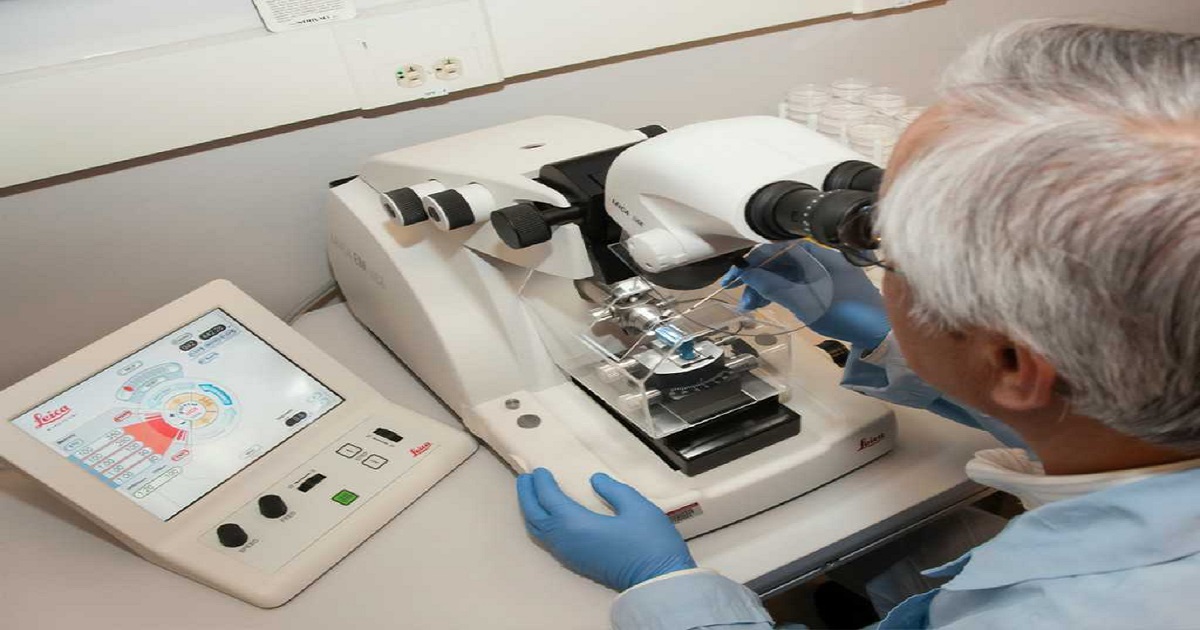
Health Technology
Article | September 12, 2023
Everybody deals with stress and anxiety, however the key is to know what to do when you’re stressed out. It is not always easy to keep your feelings from getting the best of you.
With this in mind, here are seven tips that a person can use to help manage their daily stresses and anxieties before they get out of control.
1. Get all of the facts of the situation: Gathering the facts of a certain event can prevent us from relying on exaggerated and fearful assumptions. By focusing on the facts, a person can rely on what is reality and what is not. Most importantly, do not focus on your fearful thoughts when you’re stressed out.
2. Take a break: Sometimes, we get stressed out when everything happens all at once. When this happens, a person should take a deep breath and try to find something to do for a few minutes to get their mind off of the problem. A person could take a walk, listen to some music, read the newspaper, or do an activity that will give them a fresh perspective on things.
3. Carry a small notebook of positive statements with you: Another technique that is very helpful in managing fear is to have a small notebook of positive statements that makes you feel good. Whenever you come across an affirmation that relaxes you, write it down in a small notebook that you can carry around with you in your pocket. Whenever you feel depressed, open up your small notebook and read those statements.
4. You can’t predict the future: While the consequences of a particular fear may seem real, there are usually other factors that cannot be anticipated and can affect the results of any situation. We may be ninety-nine percent correct in predicting the future, but all it takes is for that one percent to make a world of difference.
5. Challenge your negative thinking with positive statements and realistic thinking: When encountering thoughts that make you fearful or depressed, challenge those thoughts by asking yourself questions that will maintain objectivity and common sense. Focus on the reality of your situation and not on your thoughts. Your fearful thoughts can make things worse so try to focus on something positive when you get anxious.
6. Divide your activities into separate steps: When facing a current or upcoming task that overwhelms you with a lot of anxiety, divide the task into a series of smaller steps and then complete each of the smaller tasks one step at a time. Completing these smaller activities will make the stress more manageable and increases your chances of success.
7. Take advantage of the help that is available around you: There are many individuals who have been expertly trained in the field of psychology to help you find ways to manage fear and anxiety. Seek out someone whom you trust to provide sound advice and guidance. This same professional can also help you create an action plan for dealing with your fears and anxieties in the future.
Read More

Health Technology, Digital Healthcare
Article | July 14, 2023
Artificial Intelligence is here to improve our lives, by not just making things more efficient, but also increasing our lifespan. Companies across industries are experiencing the advantages that come with AI innovation, especially the healthcare space. Throughout human history, we’ve been able to understand the parameters that determine health better, and we’ve developed accompanying technology. With vaccines in the late 1700s, anesthesia and medical imaging in the 1800s, to organ transplant and immunology in the 1900s, healthcare innovation has been on an upward slope.
Read More

Health Technology, Digital Healthcare
Article | August 21, 2023
It is not an easy task to engage decision-makers in hospitals, insurance providers, health systems, and private practices. These high-powered directors, managers, and executives are busier than ever. This makes the process of health tech marketing difficult. Apart from overwhelming job responsibilities, these healthcare professionals are also inundated with ads, emails, and phone calls. So rather than sending them messages randomly, it is important to help your prospects when they are free from their daily disruptions and have time.
Inbound marketing, a new form of marketing, lays out various effective healthcare marketing techniques, tricks, or tactics. These health tech marketing techniques or methodologies are helpful in the three stages of your health tech client journey:
Awareness Stage: This is the stage where they do not know they have a problem, but you make them aware of the fact that they have a problem.
Consideration Stage: In this stage, they are aware that they have a problem and consider finding a solution from you or your competitor.
Decision Stage: This is the final stage, where prospects make a decision.
Here are some effective health tech marketing techniques to engage new health tech marketing prospects online all through these stages.
Offer Entertaining and Informative Blog Content
Content is king. Roper Public Affairs, in their research report, say that around 80% of B2B decision-makers prefer to gather information from articles and blogs over ads. According to the research done by HubSpot, companies that publish blogs frequently get 4.5x more leads. Engage your health tech prospects with regular content that can address their interests and the problems they face.
However, it is a mistake to focus only on your health tech company’s benefits, features, or sales pitches in your blogs. This may make your prospects think you are just after their money. One of the best health tech marketing techniques to engage your prospects online is to provide answers to the challenges they face.
You can even ask and encourage your clients to contribute success stories or guest posts. These posts will have more value and the chances of them being shared are high. It is also better to create a strategy to make sure the health tech marketing content you make is valuable and relevant to your potential clients.
Encourage Social Media Feedback and Blog Comments
Providing great and prospect oriented health tech marketing content is just the beginning. You can solicit reactions from your audience. Asking questions at the end of blogs and social media health tech messages is a great way to collect reactions from the audience. It is good to thank them for responding when they leave a comment. Also, give them a comprehensive answer.
This will help build your credibility and make the clients come back. Sometimes, you may get spam comments, which are not connected to your post. Weed them out to make all comments relevant to the post. This health tech marketing technique will make your potential clients stay engaged in what you post online.
Host Google Hangouts or Webinars
People love being visually engaged. So, webinars or Google Hangouts are powerful tools that allow real-time interaction with your customers. This helps you to establish a personal connection with your potential clients through video or audio. Various visual aspects, including slides, graphics, and live videos, make it easier for you to share your content with customers.
Being an interactive health tech marketing technique, at the end of webinar sessions or Google hangout, you can have a Q and A session to clarify any questions from the clients. Compared to merely writing blog posts and articles, this, as a two-way dialogue, and will help you a lot in building a strong relationship with your clients.
Create a Group or Community
One of the best health tech marketing techniques to engage new customers is to interact in online forums and communities. Your buyers can get added to your members-only group automatically and then these members can socialize with each other and discuss healthcare technology.
These forums can be used to share content that is not available to the public. To the members, you can also offer various discounts and special pricing. Your customers, being part of such a group, will feel special and increase the possibility of a repeat purchase.
Co-Create with Existing Customers
If you are planning to write an e-book, improve your website, or launch a new product, involve your existing customers by getting suggestions from them. For fostering loyalty, depending on the situation, it is very effective to make your customers involved in major decision-making processes. They will feel proud that they participated, at the end of the process.
This health tech marketing technique may even allow you to hold a contest to select an idea from your customers for your next design and offer rewards for the one which is selected. Rewards can be a special mention on your website, a discount, or a freebie.
Celebrate Together!
Another great health-tech marketing technique to build stronger relationships with your customers is to celebrate milestones with them. Any achievement, small or big, can be a milestone. Even, achieving an award for attaining a certain number of followers can be a milestone. Sharing such moments of success with your customers and social media followers may make them feel like they are part of your business and success.
It is also a good idea to give them a discount offer. Also, recognizing the success of your clients and featuring them will establish a good relationship with customers.
Monitor Social Media
The best place to engage your clients in conversations about your products and industry is social media. Selecting a topic that is trending in your industry may be a hot cake for you to have the conversation on your social media platforms. Tracking trending topics related to your industry will always give you an insight for your next blog post and social media posts.
By sharing, liking, and providing answers you can also take part in conversations. This will make you an authority and customers will feel good about your credibility. As a health tech marketing technique, monitoring social media will make you gain the trust of the customers and build your brand gradually but successfully.
Build a List of Leads and Nurture them
Email marketing, as a health tech marketing technique, is a very effective strategy to nurture B2B customer relationships. According to HubSpot, for business communication, 86% of people prefer emails. You will be in the minds of potential customers through your value-packed and attractive emails. They will remember you when they identify a requirement.
Through your emails, you can update and educate your potential customers about relevant topics and trends related to the health tech industry. A newsletter in a week will be fair enough to keep them engaged and updated about your brand and industry.
Summing up
The key to generating more qualified leads and increasing your brand recognition is engaging new prospects tough new and innovative health tech marketing techniques. This will make your sales team’s job easier; they can convert these leads into customers. The above-listed health tech marketing techniques to engage with your prospects can be effectively used with your well-crafted Inbound marketing strategy.
Doing all of these alone can be very challenging. We, at Media7, partner with healthcare technology companies and healthcare tech marketers to offer support, strategy, and extending help to implement these activities. Through the collaboration, we help health tech companies to attract more visitors to their websites, generate leads, convert, and make them your happy customers. For more details of our services, visit our website: https://media7.com/
Frequently Asked Questions
What is a health tech marketing strategy?
Health tech marketing strategy is a part of an inbound marketing process for marketing healthcare tech products. It uses resources that can trace various opportunities through lead generation and branding, and overcome threats of healthcare businesses, which is highly competitive.
What is the best health tech marketing technique?
The best health tech marketing technique is to generate leads through various content forms. Health tech Content marketing helps create awareness about the product and attract clients to it. Different forms of content can include blogs, articles, press releases, newsletters, and much more.
Where to start when creating your healthcare marketing strategy
The best way to start when creating your healthcare marketing strategy is to set your goals. This is because the success of your healthcare marketing strategy depends upon the goal you set for yourself when you start the business and the marketing for it.
Read More

Article | December 28, 2020
The recent COVID-19 pandemic in 2020 has changed the way the healthcare industry has been processing. It has transformed the healthcare sector digitally. Healthcare providers have changed services with the latest healthcare technology trends in digital and virtual platforms. Every healthcare provider is updating services by adopting digital advancements in their practices to increase their capacity to engage the maximum number of patients. Still more advancements and updates are needed to address many challenges in the industry such as cybersecurity, effective payment model, telehealth, patient experience, invoicing and payment processing, and big data.
Last year, wearable devices in the healthcare industry were quite popular with the patients. These devices have helped patients be aware of various healthcare metrics. Due to the introduction of the 5G internet, the wearable devices market is expected to have huge scope in 2021. Healthcare technology trends, such as the use of a digital dashboard scheduler or chatbots as a digital assistant, help hospitals and other healthcare organizations to better track appointments, contacts, demography, and make changes more efficiently as these are practical measures for modifying and monitoring patient activities.
Telemedicine, using video conferencing, digital monitoring, etc. have also been very helpful in containing the spread of the pandemic. It has made healthcare accessible for everyone, especially in rural areas. For remote patient care systems, telehealth and teleradiology reporting are very important technological upgrades. Healthcare technology trends of 2020, including patient portals, mobile health applications, remote care via telehealth, and wearable devices, played a major role in tackling the global pandemic situation. Artificial intelligence (AI), Machine Learning (ML), and Robotic Process Automation (RPA) also played a vital part in handling the situation. All the above-mentioned are COVID-19 fueled healthcare technology trends in 2020, which are expected to continue in coming years too.
Here is a detailed look into the healthcare technology trends, which are expected to address the new challenges and revolutionize the healthcare industry in 2021.
Technology Trends that will Revolutionize the Medical Industry in 2021
The digital transformation of the healthcare industry has been fast-forwarded by COVID-19 in 2020. Recognizing the healthcare technology trends, many healthcare providers have readily shifted their operations to the latest trending technologies. Others are also looking forward to setting their operations according to the upcoming trends.
It seems like almost all the healthcare providers genuinely wanted to transform their operating system to engage the maximum number of patients, due to the healthcare technology trends set after the hardest crisis in the healthcare industry virtual reality healthcare. So, before planning your healthcare strategy for 2021, don’t miss to include these healthcare technology trends of 2021 to achieve better healthcare outcomes and stand one step ahead of your competitors.
Patient Engagement Technology
One of the most competitive healthcare technology trends in 2021 will be patient engagement technology. There are countless technologies available in the market for patient engagement, evaluation, and campaigning. Due to high competition in the market, these tools are priced competitively.
Many healthcare organizations have started empowering themselves by achieving consistency in patient engagement with the help of available tools in the market. This also helps them achieve increased ROI. The healthcare technology trends, including remote care via telehealth, patient portals, wearable devices, mobile health applications, and many more, empower patients and increase patient engagement.
Hospitals and other healthcare organizations need to improve patient experience along with engagement. The entire road to patient satisfaction and experience can be changed with these healthcare technology trends in 2021.
Telemedicine
As telemedicine revolutionized the entire healthcare technology in 2020 by playing a vital role in containing the COVID-19 pandemic, it is expected to be one of the healthcare technology trends in 2021 too.
Using the advancement, it possible for healthcare professionals to diagnose and treat any number of patients remotely through phone calls, mobile apps, emails, and even through video calls. Telemedicine can provide patients with better access to all healthcare services, drive up efficiency and revenue, and lower healthcare costs.
Augmented Reality (AR) and Virtual Reality (VR)
The arrival of both AR and VR solutions has made way to witness meaningful advancements in the healthcare industry and technology. Advancements that could only be dreamt of a decade back, have become realities and been implemented. These two healthcare technology trends offer some serious promise to the world of healthcare, including educating patients before a treatment procedure.
AR offers one of the latest and most spontaneous options in the healthcare industry. AR allows doctors and surgeons to experience 3D effects on real-world scenes. This healthcare technology trend permits the professionals to stay grounded on actual procedures with access to all the data through various other emerging technologies. This makes doctors compare data, in the virtual world, to understand what the patient is experiencing and make a flawless diagnosis and suggest healthcare procedures.
Chatbots
It is either impossible or expensive for patients to get answers from specialists for their routine queries. But, chatbots make it easier and comfortable for healthcare service providers to answer questions of patients cost-effectively. Though chatbots are currently in the experimental phase to be used in healthcare solutions, they are most likely to have the necessary access to clinical scenarios by the beginning of 2021. It is expected to be one of the progressive healthcare technology trends in 2021.
As a digital assistant, chatbots allow healthcare providers to keep a track of contacts and appointments and make changes, when necessary. Chatbots are going to revolutionize the clinical processes and business, providing practical as well as clear measures for modifying and monitoring patient activities.
Big Data and 5G
5G is about to sweep the world in the coming months. With the extraordinary intensification in transmission bandwidth of 5G, users will construct a huge amount of data. With 5G, the Internet of Things (IoT) will be used largely to send and receive data. In the next three years, the global wearables market is expected to reach an annual turnover of US$52 billion. This can be attributed to the introduction of 5G wireless technology, one of the healthcare technology trends.
Healthcare providers will have the access to a huge amount of accurate data when data from wearable devices and other initiatives are added together. This is going to change the way providers collect data and the way doctors and patients communicate.
Thus, while you plan to upgrade your healthcare technology for 2021, don’t forget that you will be receiving a huge amount of data from patients, which can be attributed to one of the important healthcare technology trends of 2021, big data and 5G.
Artificial Intelligence
Artificial Intelligence (AI), one of the prominent healthcare technology trends of 2021, is developed to mimic human thought processes. GNS Healthcare AI system and IBM Watson are some of the most popular examples for the active use of AI in the healthcare process. This trend is going to rule healthcare processes and revolutionize medical care in 2021.
To improve healthcare professionals’ and hospitals’ care delivery to patients, Google’s DeepMind has built mobile apps and AI. The AI healthcare market is expected to reach US$7988.8 million in 2022 from US$667.1 million in 2016. This healthcare technology trend is expected to take the healthcare industry to a new realm by increasing patient engagement and experience in 2021.
Cloud Computing
Cloud computing is one of the major healthcare technology trends in 2021 that is going to change the industry. Attributed to the recent development of various healthcare technology trends, the cloud computing market is expected to reach US$35 billion in 2022 from US$20.2 billion in 2017.
This tremendous growth is attributed to the need of storing a high volume of data for healthcare organizations at a lower cost. In the healthcare domain, the main use of big data is in Electronic Health Record systems (EHR). It allows secure storage of various digital documentation such as demographics, medical history, diagnoses, and laboratory results. Cloud computing, an important healthcare technology trend, is expected to make the healthcare process smooth and flawless in 2021.
The biggest trend of 2021 in the healthcare industry is the holistic technological transformation of healthcare firms. Whether AI, ML, RPA, telemedicine, big data, chatbots, or cloud computing, almost everything related to data management and monitoring will peak in 2021. These healthcare technology trends will rule healthcare in 2021. Moreover, targeted and personalized care for critical diseases is expected to be another trend in the coming years.
Frequently Asked Questions
What are the technology trends in healthcare?
Trending healthcare technologies are AI, ML, RPA, cloud computing, big data, chatbots, telemedicine, etc. AI, the life-changing technology is going to completely transform the healthcare industry in the coming years starting from 2021.
What are the most important trends in healthcare technology?
Augmented and virtual reality, Artificial Intelligence, the Internet of Medical Things, Machine Learning, chatbots, cloud computing, telemedicine, etc. are the most important technology trends in the healthcare industry.
What are the current technological trends in healthcare?
Artificial Intelligence (AI) and Machine Learning (ML), Internet of Medical Things (IoMT), Augmented Reality (AR) and Virtual Reality (VR), Electronic Health Records (EHR), Blockchain and data security, health-tracking apps, therapeutic apps, and telehealth are the major current technological trends in the healthcare industry.
Read More